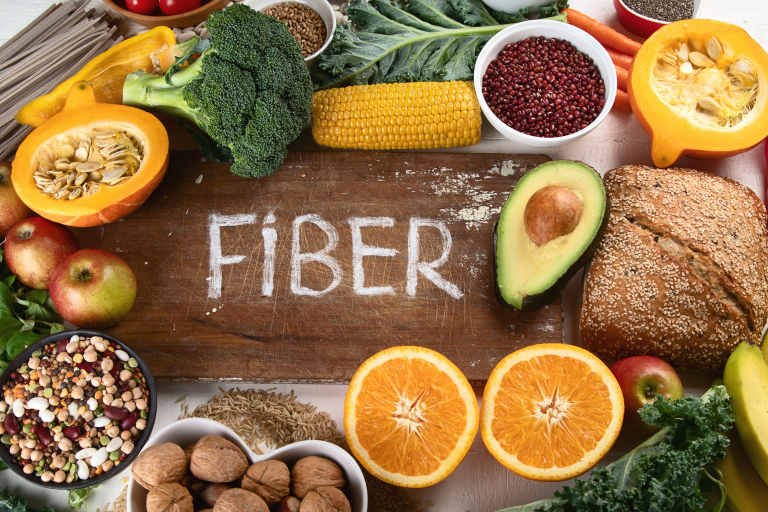10 Healthy Sources of Fat to Include In Your Diet
Fats have long been misunderstood and unfairly demonized in the realm of nutrition. However, the truth is that not all fats are created equal. Some fats are crucial for a well-rounded, healthy diet and play a pivotal role in maintaining overall well-being. Embracing the right sources of fats can be a game-changer in achieving a balanced and nourishing diet. Here are ten healthy sources of fat, along with delicious ways to incorporate them into your meals.
Avocado
Renowned for its creamy texture and versatility, avocados are a powerhouse of healthy fats, primarily monounsaturated fats. These fats are heart-friendly and aid in reducing bad cholesterol levels (LDL) while boosting good cholesterol (HDL). Avocados also provide fibre, potassium, and vitamins C, E, and K. Add them to salads, smoothies, or enjoy them on toast for a nutritious start to your day.
Olive Oil
A cornerstone of the Mediterranean diet, extra virgin olive oil is rich in monounsaturated fats and contains powerful antioxidants like oleocanthal. Regular consumption has been associated with lower risks of heart disease, reduced inflammation, and improved cognitive function. Use it as a salad dressing, drizzle over vegetables, or incorporate it into your cooking for a healthy fat boost.
Nuts
Almonds, walnuts, cashews, and other nuts are packed with healthy fats, particularly polyunsaturated and monounsaturated fats. They are also abundant in nutrients like vitamin E, magnesium, and fiber, contributing to heart health, brain function, and overall wellness. Enjoy them as a snack, add them to yogurt or oatmeal, or use them in baking.
Fatty Fish
Salmon, mackerel, trout, and sardines are brimming with omega-3 fatty acids, a type of polyunsaturated fat crucial for brain health, reducing inflammation, and supporting heart health. These fish are not only a healthy source of fat but also provide high-quality protein and essential vitamins like D and B12. Incorporate them into your meals by grilling, baking, or adding them to salads.
Chia Seeds
These tiny seeds are a plant-based source of omega-3 fatty acids, providing a great option for those following a vegetarian or vegan diet. They’re also rich in fibre, protein, and antioxidants, promoting heart health and digestive wellness. Mix chia seeds into smoothies, sprinkle over cereal, or make chia pudding for a nutritious snack.
Flaxseeds
Another plant-based superstar, flaxseeds are loaded with alpha-linolenic acid (ALA), a type of omega-3 fatty acid. Ground flaxseeds are more easily absorbed by the body and can be sprinkled on yogurt, blended into smoothies, or used in baking for a nutritional boost. They also add a nutty flavor and extra fiber to your dishes.
Coconut
Despite its saturated fat content, coconut contains medium-chain triglycerides (MCTs) that are metabolized differently in the body and may offer various health benefits, including potential weight management support and improved brain function. Use coconut oil for cooking, add shredded coconut to your breakfast, or enjoy coconut milk in curries and soups.
Dark Chocolate
Indulge guilt-free in moderation! Dark chocolate with a high cocoa content (70% or more) contains monounsaturated fats and antioxidants like flavonoids, offering potential heart-protective benefits while satisfying sweet cravings. Enjoy a small piece as a treat or add dark chocolate shavings to your yogurt or smoothies.
Tofu
As a protein-packed food derived from soybeans, tofu is a source of polyunsaturated fats and is low in saturated fats. It’s also rich in iron, calcium, and magnesium. Tofu’s versatility allows it to be used in a wide range of savoury and sweet dishes. Try it in stir-fries, soups, or even desserts for a healthy addition to your diet.
Seeds
Pumpkin seeds, sunflower seeds, and sesame seeds are rich in healthy fats, including omega-3s and omega-6s. These seeds are also packed with protein, fibre, and various vitamins and minerals, making them a nutrient-dense addition to your diet. Sprinkle them on salads, blend them into smoothies, or enjoy them as a crunchy topping for yogurt.
Conclusion
Incorporating these healthy sources of fats into your diet doesn’t just contribute to a well-rounded nutritional intake but also supports various bodily functions. From heart health to brain function and overall vitality, these fats play a pivotal role in maintaining optimal health. Enjoy the rich flavours and health benefits these fats offer by integrating them into your everyday meals.








